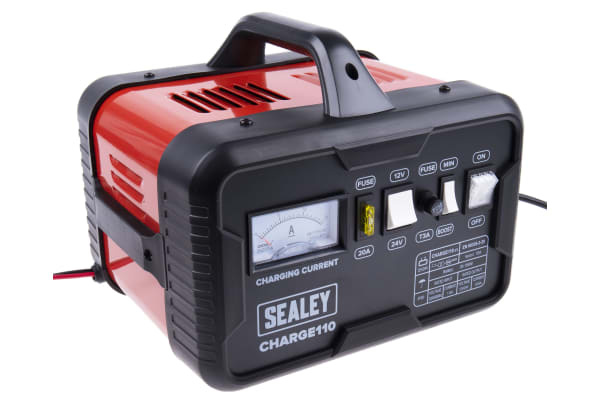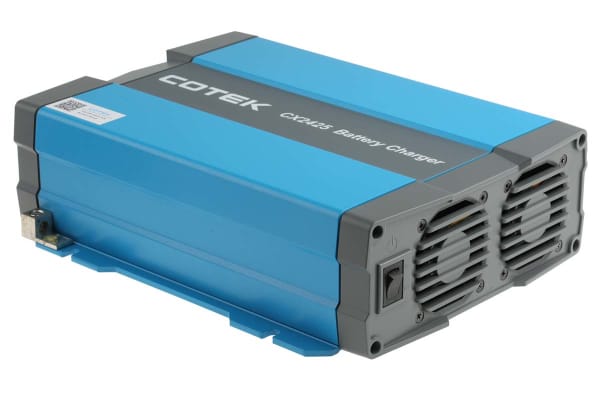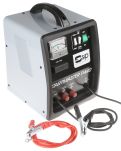Battery Chargers
A battery charger is a device designed to push electrical energy through a secondary cell or a battery to recharge it. Different types of rechargeable batteries respond best to different types of charging, therefore it is important to know which charger or chargers are applicable for the different batteries that you need to recharge. For example, a mobile phone should not be charged with a car battery charger, neither should a NiCd charger be used to charge NiMH batteries.How do battery chargers work?A typical rechargeable battery can be charged many times. Firstly, it is important to be sure that the battery in question is indeed the type that allows for recharging. If it is rechargeable, it can be connected to the charger unit. Once a current starts to flow, the electrodes that have depleted out of the batteries are recharged and the battery’s energy is restored. It is important to cut off charging once maximum capacity is reached, or the batteries will have to expend the excess energy and will overheat, leading to risk of rupture, chemical leaks, or sometimes even the explosion of the battery.What are the different methods of battery charging?As there are different chemical contents in different batteries, there are different methods of battery charging that are the most suitable for each chemistry and battery type. There are battery chargers available for standard sizes, including AA, AAA, C, D, and 9V, and there are also battery chargers available for larger lead-acid batteries. Some battery chargers have slots for the smaller cells to be placed into for charging and these often fit straight into a plug socket for power. Other battery chargers come with crocodile clip connectors to connect to larger, lead-acid batteries.Lead- and lithium-based chargers operate on constant current constant voltage (CC/CV).Nickel-based batteries charge with constant current and the voltage is allowed to rise freely.Features and BenefitsCost effective – by recharging batteries, they can be reused multiple times before being disposed. Recharging allows for a battery’s performance life to be expanded and prevents them from being sent to landfillEco-friendly – recharging a battery is better for the environment as recharging batteries reduces the number going to landfill as well as reducing the need for more batteries to be producedSuitability – there are several types and models of battery chargers that can be used to charge several chemistries including lithium-ion, NiCd, NiMHAdaptability – some battery chargers will work in your car if they have an adapter, providing charging on the move for professional and personal gadgets such as cameras, monitoring equipment, and moreVisual completion – lights that change colour to provide a visual indication of charging completion
-
Mascot Battery Charger For Lead Acid 12V 10A
VND9,401,122.36 -
RS PRO Battery Charger For Lead Acid 12V 14A with UK plug
VND10,294,116.00 -
RS PRO Battery Charger For Lead Acid 24V 25A with UK plug
VND11,323,527.60 -
CTEK MXS 10 Battery Charger For Lead Acid 12 V 12V 10A with EU plug
VND11,731,107.64 -
RS PRO Battery Charger For Lead Acid 12V 28A with UK plug
VND12,379,720.64 -
Mean Well Battery Charger For Lead Acid 55.2V 10.5A with AC plug
VND14,154,827.96 -
COTEK Battery Charger For Lead Acid 28.8V 25A
VND16,291,484.72 -
RS PRO Battery Charger For Lead Acid 12V 33A with UK plug
VND18,167,440.90 -
TecMate OptiMate PRO-4 Battery Charger For Lead Acid 12 V, 24 V 12V 4A with UK plug
VND43,059,324.77










